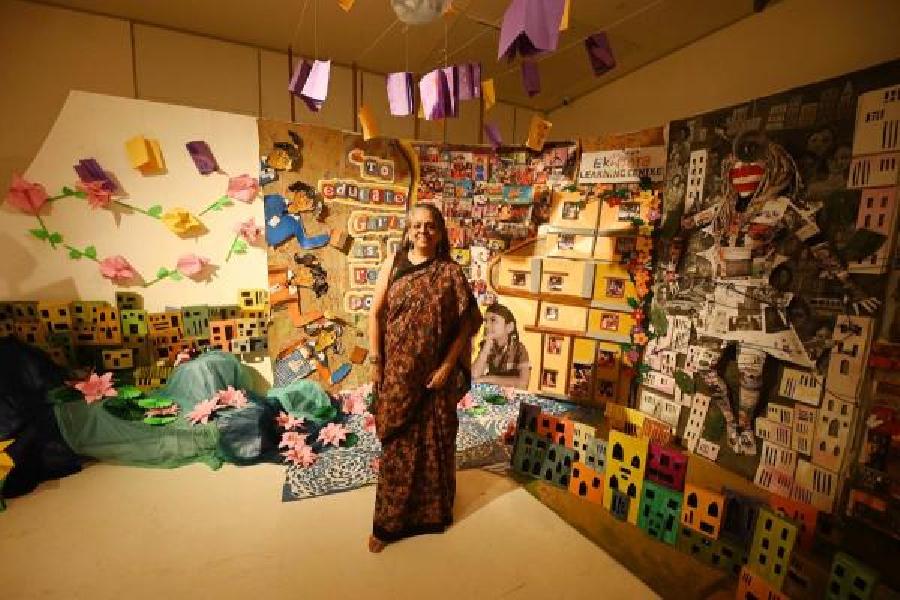A group of girls who live in shanties made an art installation that brought out their living conditions, plight and their vulnerability to abuse and maybe even trafficking.
But the installation is not just about the darkness and despair in their lives but also about hope and their ability to break free of poverty and patriarchy through education.
The 30ft × 9 ft installation has been done by 40-odd students of an NGO named Ek Tara.
While many are getting support and are able to cross the threshold, many more still live a life deprived of their rights caught in the vicious cycle of poverty.
“We are working with 1,200 girls but there are thousands of girls in other neighbourhoods who live in deplorable conditions vulnerable to abuse and trafficking. But with support, they can grow and blossom and that is what we as a society need to do,” said Vinita Saraf, founder and trustee, Ek Tara.
Overlooking the slums are eyes, depicting the eyes of the people who see the slums every day but do nothing about it, not even roll down their windows while crossing them.
“The entire population that lives there does so not by choice but because they are born there. Each one has a potential and that is what has to be allowed to blossom,” said Saraf.
The installation was set up at the Kolkata Centre for Creativity off EM Bypass during a day-long exhibition on Saturday.
The installation is about nine-year-old Alina, a metaphor for the hundreds of girls whose voices and opportunities are stifled by a patriarchal society.
The first panel describes life in the slums, highlighting the daily struggles of long queues for toilets or drinking water.
The students of the photography club of Ek Tara have used pictures clicked in the slums of real people and their lives.
A railway line cuts through a slum and women with their families sit on the railway tracks which makes girls vulnerable to trafficking, child labour or even abuse.
The second panel depicts Alina chained, bound by her hands and feet. People see but no one speaks, is what they show.
It is in the third panel that the girls have shown a glimmer of hope and joy.
Alina and her friends go to Ek Tara — to school in uniform and a centre that takes care of their extracurricular activities and vocational training to make them independent.
“We have shown water lily, blooming from dirt, to depict the resilience of these girls and how they can bloom with the right opportunities,” said Shuvashree Biswas,
executive programme manager — communications, early childhood learning centre, Ek Tara.
Discrimination is what the girls face every day.
“My brother is not expected to clear the plates after dinner and that is my work,” said 14-year-old Ayesha Qamar who was part of the group that did the installation.
Ayesha said a friend of hers has to do all the chores at home. She goes to a vernacular medium school while her brother is sent to an English medium school.
“The change has to be in the mindset of the people who live there and those in the society who should create opportunities for them,” said Biswas.
